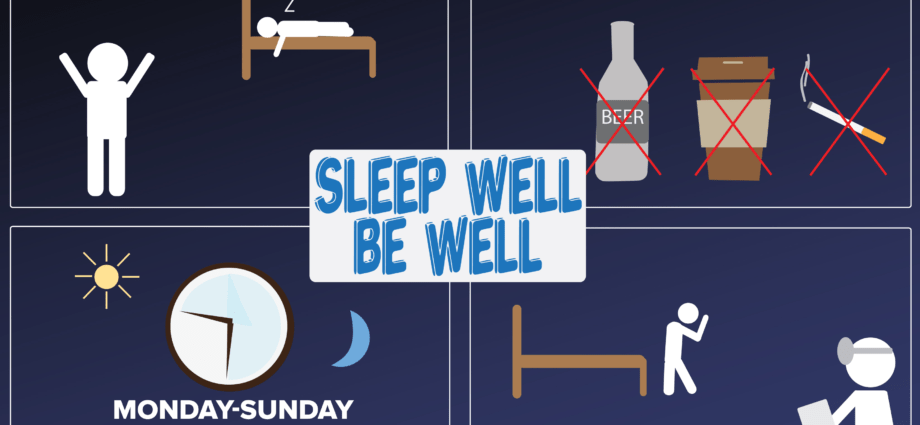All my life I have been a sleepyhead and an owl, i.e. loved to sleep a lot, went to bed late and woke up late. I especially suffered during my school years: it seemed wild to me to come to school at 8:30 in the morning !!! I was lucky with work – in my opinion, only owls work on television, so the working day did not start before 11:00 – 11:30.
However, I was always worried that my body needed many hours of sleep. After all, I do not have time to do a huge number of useful and interesting things, lying in bed for 10-11 hours a day. From time to time I tried to fight myself and make myself a morning person, but to no avail.
With the birth of a child, the time in the day became catastrophically short, and in order to have time for all my affairs, I had to limit myself in some way. The simplest solution, at first glance, was to sleep less. Rather, it happened, in general, regardless of my decision)))
But very soon I began to feel much worse, and somewhere in the third month of motherhood it became obvious that I had postpartum depression. Already now, having studied the question, I realized that one of the causes of depression was a terrible lack of sleep.
It turned out that sleep is not a luxury at all, but the first necessity in the struggle for health and longevity.
Healthy sleep can be attributed to one of the secrets of longevity. Studies have shown that long-term sleep deprivation can be a contributor to diabetes, obesity, high blood pressure, cardiovascular disease, and a general weakened immune system. In addition, hormones change from a constant lack of healthy sleep, which affects appetite and digestive processes, reduces the body’s ability to deal with stress and increases the risk of depression. Good sleep, proper nutrition and exercise are essential to stay healthy.
The average person (not a yoga practitioner for years and not a specialist in qigong / tai chi, etc.) needs at least 8 hours of sleep per day, and reducing this time by a couple of hours significantly increases the risk of getting sick.
In addition to the duration of sleep, its quality is important. Sleep should be continuous. The sleep phase in which we dream (REM sleep, or REM) has a profound effect on how we feel during our waking hours. If sleep is interrupted frequently, the brain spends less time in this phase, as a result of which we feel sluggish and have difficulty remembering and concentrating.
Of course, uninterrupted and prolonged sleep in itself does not guarantee health, but it does affect the maintenance of vital functions. For example, during sleep, the body is able to compensate for “damage from life”: “repair” of tissues, muscle growth, protein synthesis occur almost exclusively during sleep. By the way, I found studies that showed that athletes who spend more time in bed recover faster and perform better. Many people even try to get 1–2 hours of sleep just before a serious physical activity or sports competition – this way the body will better prepare and focus before the test.
Sleep for health has a positive effect on mental performance. Experts recommend a ten-minute nap before an important event such as an exam or a meeting. Sleeping longer and deeper can have the opposite effect. This recommendation seems difficult to implement to me. If I remember correctly and do not confuse anything, Napoleon could have done this: fall asleep for 15 minutes in the midst of a battle))) But he is the only person I know who so much controlled his ability to fall asleep and wake up.
Here are some tips from experts on how to help yourself fall asleep and get enough sleep:
- To get more REM sleep, try to go to bed at the same time.
- Rid your bedroom of anything that might interrupt your sleep, such as pets or snoring spouses.
- Stop using your favorite gadgets an hour and a half before bedtime. Bright screens of phones, iPads, computers make your brain wake up and stimulate it to be active, which is contrary to our goal. This recommendation helped me a lot, this rule definitely works!
- Don’t go to bed until you feel tired and sleepy. Do something soothing: read a book (not on a bright screen) or listen to calm music, take a hot bath, in general, do any activity that makes you sleepy, and only then go to bed.
- Stop drinking caffeinated beverages 5-6 hours before bed, and before bed, drink something sedative, such as brewed mint leaves.
I hope that these recommendations will help you sleep well and not feel guilty about it)))
Sources:
1. Division of Sleep Medicine at Harvard Medical School
2. Cappuccio FP; D’Elia L; Strazzullo P; Miller MA. Sleep duration and all-cause mortality: a systematic review and meta-analysis of prospective studies. SLEEP 2010;33(5):585-592
3. Associated Professional Sleep Societies, LLC http://www.sleepmeeting.org/










